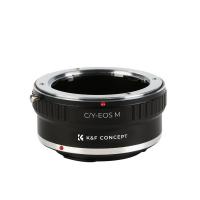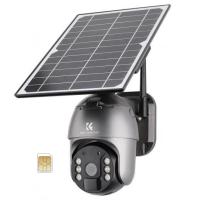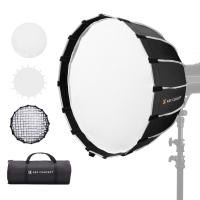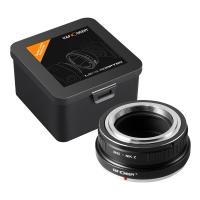Are Wifi Cameras Reliable ?
WiFi cameras can be reliable, but their reliability can vary depending on various factors. The quality and reliability of a WiFi camera can be influenced by the brand and model of the camera, as well as the strength and stability of the WiFi network it is connected to. Factors such as distance from the router, interference from other devices, and the overall quality of the network connection can affect the reliability of the camera's performance. Additionally, the reliability of WiFi cameras can also be influenced by the software and firmware updates provided by the manufacturer, as these updates can address any potential bugs or security vulnerabilities. Overall, while WiFi cameras can be reliable, it is important to choose a reputable brand and ensure a strong and stable WiFi connection for optimal performance.
1、 Signal Strength and Connectivity
Wifi cameras have become increasingly popular in recent years due to their convenience and ease of use. However, the reliability of these cameras can vary depending on several factors, with signal strength and connectivity being crucial considerations.
Signal strength plays a significant role in the reliability of wifi cameras. A strong and stable wifi signal ensures that the camera can transmit and receive data effectively. If the signal is weak or intermittent, it can result in lagging video feeds, dropped connections, or even complete loss of footage. This can be particularly problematic in areas with poor wifi coverage or if the camera is placed far away from the router.
Connectivity is another important factor to consider. Wifi cameras rely on a stable internet connection to function properly. If the internet connection is unreliable or experiences frequent outages, it can affect the camera's performance and reliability. Additionally, if the camera is not properly configured or if there are issues with the network setup, it can lead to connectivity problems.
It is worth noting that advancements in technology have improved the reliability of wifi cameras in recent years. Manufacturers have introduced features like dual-band wifi, which allows cameras to connect to both 2.4GHz and 5GHz networks, providing more options for stable connections. Additionally, some cameras now offer the option to connect via Ethernet for a more reliable and consistent connection.
To ensure the reliability of wifi cameras, it is essential to have a strong and stable wifi signal in the area where the camera is installed. This can be achieved by placing the camera within range of the router or using wifi extenders to boost the signal. Regularly updating the camera's firmware and ensuring proper network configuration can also help maintain a reliable connection.
In conclusion, while wifi cameras can be reliable, signal strength and connectivity are crucial factors that can impact their performance. With the latest advancements in technology, the reliability of wifi cameras has improved, but it is still important to ensure a strong and stable wifi signal for optimal performance.

2、 Video Quality and Resolution
Wifi cameras have become increasingly popular in recent years due to their convenience and ease of use. However, the reliability of wifi cameras can vary depending on several factors.
One of the main concerns with wifi cameras is their video quality and resolution. In the past, wifi cameras were often criticized for their lower video quality compared to wired cameras. However, with advancements in technology, many wifi cameras now offer high-definition video and resolution, rivaling that of wired cameras. This means that users can expect clear and detailed footage from their wifi cameras, allowing for better identification of people and objects.
Another aspect to consider is the stability of the wifi connection. Since wifi cameras rely on a wireless network to transmit video footage, a weak or unstable wifi connection can result in interrupted or poor-quality video. However, with the improvement of wifi technology and the introduction of mesh networks, which provide better coverage and stability, the reliability of wifi cameras has significantly improved.
It is also important to note that the reliability of wifi cameras can be influenced by external factors such as the distance between the camera and the router, the presence of obstacles, and the overall quality of the wifi network. Therefore, it is crucial to ensure a strong and stable wifi connection for optimal performance.
In conclusion, wifi cameras have come a long way in terms of reliability, especially in terms of video quality and resolution. With advancements in technology and improvements in wifi networks, wifi cameras can now provide high-definition footage and reliable performance. However, it is still important to consider factors such as the stability of the wifi connection and external factors that may affect the reliability of wifi cameras.

3、 Security and Privacy Features
Wifi cameras can be reliable for security and privacy features, but it is important to consider certain factors before making a decision.
In terms of security, wifi cameras offer several advantages. They can be easily installed and accessed remotely, allowing users to monitor their property from anywhere with an internet connection. Many wifi cameras also come with motion detection and alert features, which can notify users of any suspicious activity. Additionally, some models offer cloud storage options, ensuring that footage is securely stored and accessible even if the camera is tampered with or stolen.
However, it is crucial to choose a reputable brand and ensure that the camera has the latest security updates. Like any internet-connected device, wifi cameras can be vulnerable to hacking if not properly secured. It is recommended to use strong passwords, enable two-factor authentication, and regularly update the camera's firmware to mitigate these risks.
When it comes to privacy, wifi cameras can raise concerns. There have been instances of unauthorized access to camera feeds, leading to privacy breaches. To address this, manufacturers have been implementing stronger encryption protocols and privacy features. It is important to carefully review the camera's privacy settings and understand how the data is being handled. Some cameras offer local storage options, which can provide an extra layer of privacy by keeping the footage within the user's control.
In conclusion, wifi cameras can be reliable for security and privacy features, but it is essential to choose a reputable brand, keep the camera's firmware updated, and take necessary precautions to secure the device. Staying informed about the latest security practices and being mindful of privacy settings can help ensure a reliable and secure wifi camera experience.

4、 Power Source and Battery Life
Wifi cameras have become increasingly popular in recent years due to their convenience and ease of use. However, when it comes to reliability, there are a few factors to consider.
Power source and battery life are crucial aspects to consider when evaluating the reliability of wifi cameras. Most wifi cameras are powered by either a direct power source or a rechargeable battery. Cameras that are connected to a direct power source tend to be more reliable as they do not rely on battery life. These cameras can operate continuously without the need for frequent battery changes or recharging. On the other hand, cameras that rely on batteries may have limitations in terms of battery life, requiring regular maintenance and monitoring to ensure uninterrupted operation.
Advancements in technology have led to improvements in battery life for wifi cameras. Many manufacturers now offer cameras with extended battery life, allowing for longer periods of operation without the need for recharging. Additionally, some cameras are equipped with power-saving features such as motion detection, which can help conserve battery life by only activating the camera when motion is detected.
It is important to note that the reliability of wifi cameras can also be influenced by other factors such as the strength and stability of the wifi signal. A weak or unstable wifi connection can result in intermittent or unreliable camera performance. However, with the increasing availability of high-speed internet and improved wifi technology, this issue is becoming less common.
In conclusion, wifi cameras can be reliable, especially when connected to a direct power source. Battery life has also improved, allowing for longer periods of operation. However, factors such as the strength and stability of the wifi signal can still impact reliability. It is important to consider these factors when choosing a wifi camera to ensure optimal performance.
































There are no comments for this blog.